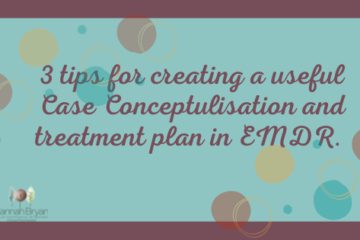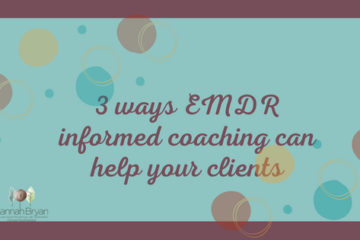I was really surprised to read some research recently that suggested that therapists begin to decline in effectiveness the moment they start practicing therapy post training. Wow, this is a pretty shocking claim and actually quite scary.
But let’s have a think about it. We do our standard training in EMDR and begin to get our head round things such as the Adaptive information processing theory, the standard 8 phase, 3 pronged approach to treatment but how much of the teaching actually sinks in? And I guess for me this is one of the key points.
So I came away from training thinking I had grasped it fairly well and whilst acknowledging that I was no expert and that I would have to look at my workbook probably fairly often, I certainly felt enthusiastic and ready to go. Training is great for motivating us isn’t it. I would hope that my competency would increase with time but maybe I am wrong to presume that?
I guess when I think about this research, the clinicians just went straight into the therapy without doing any further training. There seems to be an assumption that attending the training is enough.
Is this ever really enough? I don’t think so. I agree that you have to use it or you will lose it. But most importantly, I think you need support around you. I was lucky enough to have colleagues in the NHS department I worked in who were further along their EMDR journey than me so I felt I did have support when I returned from my training to working as normal, but perhaps not everyone has this luxury. And to be fair it shouldn’t be seen as a luxury, partly this blog and my facebook page are my offering support to EMDR therapists http://www.facebook.com/theemdrsupervisor
Research also suggests that Clinicians perform at their best when they push themselves to identify what they do well and push from there. I love this idea as it challenges us to never get complacent. I always say that the day I stop learning in this job is the day that I should give it up.
In regards to our EMDR then, how do we really know what we do well. For me the key is to find a supervisor who you trust, who is knowledgeable and who has walked the same journey that you wish to travel on. I wanted a guide to light the path ahead in a gentle, supportive yet challenging way.
I also like to record sessions as I think that we are our own worst critic and watching ourselves back will encourage us to see where we can make some improvement on the work we are doing.
I have developed an accreditation workbook https://theemdrsupervisor.com/are-you-ready-for-emdr-accreditation-the-workbook/ to help you identify what you need to develop and show your supervisor in order to gain EMDR Accreditation. For me going through something like this helps me to recognise what the edge of my skills are and then go and do some CPD to fill that gap and help me to be the best therapist I can be.
A key point in all of this for me is that We don’t know what we don’t know so even though we think we are doing it correctly, maybe we aren’t after all? I’ve talked of my many experiences when I have realised that I have been making mistakes simply because I didn’t know what I didn’t know. It brings to mind an old Yorkshire saying my Dad often says to be when I said but I thought ….. He would always say ‘Well you know what thought did don’t you?’ Apparently it followed a muck cart and thought it was a wedding (how strange are all these saying we grow up with 😂😂), but the gist is just because you think it it doesn’t mean it’s right!!
So for me some of the key factors in effectiveness of EMDR therapists has to be ongoing learning, ongoing support and a lot of self reflection. I’m interested in your thoughts so do add a comment on what you think makes an effective therapist?



0 Comments